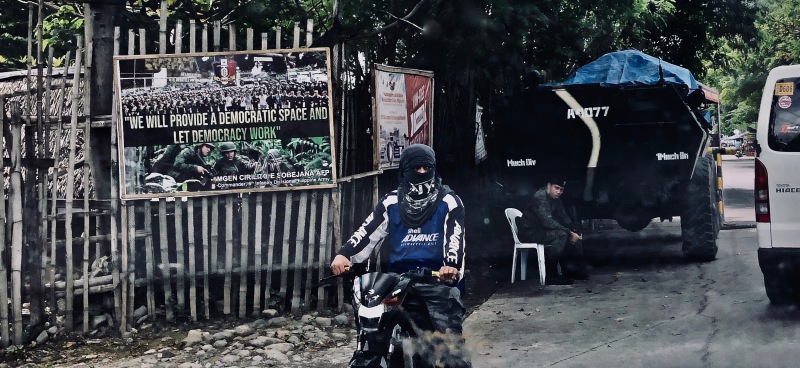KITLV/Royal Netherlands Institute of Southeast Asian and Caribbean Studies

- This event has passed.
Seminar | How peace prevails: Insurgent cohesion and fragmentation in Indonesia and the Philippines | Yuhki Tajima
10/03/2020 @ 15:30 - 17:00

Abstract
In the aftermath of separatist wars, why do some peace agreements succeed while others fail? The existing literature focuses on incentive problems, proposing that they can be solved with external guarantors or the emergence of winning internal coalitions. There has been less attention on how capacity may explain the success or failure of peace processes. Insurgencies that lack organizational capacities are more vulnerable to splintering during the negotiation or implementation of peace agreements, often resulting in splinter groups or recurrent war. In this book project, I argue that the organizational cohesion that insurgent groups have built during wartime helps insurgent leaders to hold governments to their commitments. In turn, cohesion makes insurgent leaders’ commitments more credible after war by helping them to ensure compliance of fellow fighters. Insurgent cohesion, therefore, helps both states and insurgents to uphold their commitments, thereby improving the prospects for peace to endure. Insurgent leaders use the internal social and organizational linkages built during wartime to determine how to distribute rents or use coercion to ensure compliance from governments and ensure that fellow insurgents comply with the terms of peace agreements and do not splinter off. Using survey and interview data from the case of the Free Aceh Movement (GAM) in Indonesia, I test the theory by showing how variation in the internal social and organizational linkages within explain outcomes such as postwar rents and violence. I then compare the case of Aceh with the Moro movements of the Southern Philippines.
Speaker
Dr. Yuhki Tajima is Associate Professor in the Edmund A. Walsh School of Foreign Service at Georgetown University. He has authored a book entitled The Institutional Origins of Communal Violence: Indonesia’s Transition from Authoritarian Rule (Cambridge University Press 2014) and published peer-reviewed articles in the American Political Science Review, American Journal of Political Science, and Journal of Conflict Resolution.
Tajima’s research examines insurgencies, communal violence, criminal gangs, ethnic politics, the provision of public goods, and smuggling with a particular focus on Southeast Asia. His current book project entitled ‘How Peace Prevails: Insurgent Cohesion and Fragmentation in Indonesia and the Philippines’ compares the case of the Free Aceh Movement in Indonesia and the Moro movements in the Southern Philippines to explain why some peace agreements succeed, while others fail.
He is currently a fellow of the Centre for International Security at the Hertie School in Berlin, an International Affairs Fellow at the Council on Foreign Relations, and a Visiting Scholar at Kyoto University’s Center for Southeast Asian Studies. He holds a PhD in Public Policy and an MPA in International Development from Harvard University and a BA in Physics from Swarthmore College.
Image
Fortified checkpoint in the Bangsamoro Autonomous Region of Muslim Mindanao, Philippines – Yuhki Tajima.
Registration
Please register if you wish to attend: [email protected]
Details
- Date:
- 10/03/2020
- Time:
-
15:30 - 17:00
- Event Category:
- KITLV Events
Venue
- KITLV, Room 138
-
Reuvensplaats 2
Leiden, + Google Map



